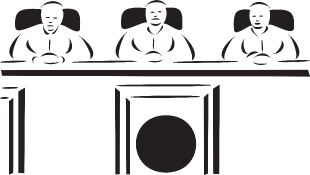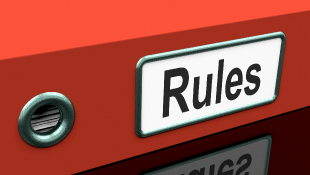|
|
|
|
More Homes on the Palos Verdes Peninsula to Face Utility Shutoffs
|

The court ultimately decided that the unambiguous language of the subrogation waiver in the development agreement between the parties did not extend to subcontractors.
Not a Waiver for All: Maryland Declines to Apply Subrogation Waiver to Subcontractors
Monday, September 23, 2024
—
Gus Sara - The Subrogation Strategist
In Lithko Contr., LLC v. XL Ins. Am. Inc., No. 31, Sept. Term, 2023, 2024 Md. LEXIS 256, the Supreme Court of Maryland considered whether a tenant who contracted for the construction of a large warehouse facility waived its insurer’s rights to subrogation against subcontractors when it agreed to waive subrogation against the general contractor. The court ultimately decided that the unambiguous language of the subrogation waiver in the development agreement between the parties did not extend to subcontractors. The court also held that the tenant’s requirement that subcontracts include a subrogation waiver did not, in this case, impose a project-wide waiver on all parties. The court, however, found that the requirement that the subcontracts include a similar, but not identical, waiver provision rendered the subcontract’s waiver clauses ambiguous and remanded the case to the lower court to determine if the parties to the development agreement – i.e., Duke Baltimore LLC (“Duke”) and Amazon.com.dedc, LLC (“Amazon”) – intended that the waiver clause in the subcontracts covered claims against subcontractors.
This case involved roof and structural damage to a warehouse in Baltimore, Maryland that Duke owned. In March 2014, Amazon entered into a development agreement with Duke for the construction of the warehouse. Amazon also agreed to subsequently lease the warehouse from Duke. Although Amazon essentially owned and/or developed the project, the development agreement identified Duke as “Landlord” and Amazon as “Tenant.”
Reprinted courtesy of Gus Sara, White and Williams
Mr. Sara may be contacted at sarag@whiteandwilliams.com
Read the full story…

No contractor wants to be terminated for default. It is the harshest contractual recourse.
Challenging a Termination for Default
Monday, September 23, 2024
—
David Adelstein - Florida Construction Legal Updates
No contractor wants to be terminated for default. It is the harshest contractual recourse. It is a recourse that has implications, particularly in the public sector. However, a party needs to be in a position to support the basis of the termination for default, and the terminated party, in most instances, should not be in a position to imply accept the basis of the default. This applies regardless of the project.
In the federal context: “When a contractor challenges a default termination, the government bears the burden of establishing the validity of the termination.” Sergent’s Mechanical Systems, Inc. v. U.S., 2024 WL 4048175, *7 (Fed.Cl. 2024) (internal quotation and citation omitted). Once the government establishes the default, “the contractor bears the burden of establishing that the default was excused by fault of the government.” Id. at *8 (internal quotation and citation omitted).
Relevant considerations as to whether the contractor is in default include the contractor’s failure to meet contract specifications or the required schedule. Sergent’s Mechanical Systems, supra, at *8. “[T]here is ‘a requirement that the contractor give reasonable assurances of performance in response to a validly issued cure notice.” Id. (internal quotation and citation omitted).
Reprinted courtesy of David Adelstein, Kirwin Norris, P.A.
Mr. Adelstein may be contacted at dma@kirwinnorris.com
Read the full story…
![General Contractor Gets Fired [Upon] for Subcontractor’s Failure to Hire Apprentices Construction tools on table](https://premisesliabilityclaimsjournal.com/construction_defect_law/images/nimg/092624_03-table-construction-tools-hardhat.png)
The lesson here for prime contractors, is that you can be liable for your subcontractor’s failure to hire apprentices, and the evidence establishing your ‘knowledge” can be as simple as certified payroll records which do not show apprentice hours.
General Contractor Gets Fired [Upon] for Subcontractor’s Failure to Hire Apprentices
Monday, September 23, 2024
—
Garret Murai - California Construction Law Blog
As most public works contractors know, Labor Code section 1777.5 requires the hiring of apprentices on public works projects and, under Labor Code section 1777.7, violations are subject to civil penalties of up $100/day and up to $300/day days for repeated violations within a three-year period.
In Lusardi Construction Co. v. Dept. of Industrial Relations, 102 Cal.App.5th (2024), a prime contractor learned the hard way that not only could it be penalized for its failure to hire apprentices but that it could also be liable for its subcontractor’s failure to hire apprentices. Forewarned is to be forearmed.
The Lusardi Construction Case
In 2014, general contractor Lusardi Construction Company hired subcontractor Pro Works Contracting to perform iron reinforcing work on a public works project owned by the San Marcos Unified School District.
Reprinted courtesy of Garret Murai, Nomos LLP
Mr. Murai may be contacted at gmurai@nomosllp.com
Read the full story…
|
Labor Dept. Projects 10-Year Gain for Construction Employment
September 23, 2024 — Tom Ichniowski - Engineering News-Record
Updated 9.3/2024: Construction employment is projected to climb by 380,100 jobs over the next decade and record a modest annual growth rate in that period, the U.S. Bureau of Labor Statistics says in a new forecast.
Insuring Your Online Presence: Limitations on Social Media Coverage for Businesses
September 23, 2024 — Geoffrey B. Fehling & Torrye Zullo - Hunton Insurance Recovery Blog
As social media continues to grow, businesses have turned to different platforms to promote their products. This advertising strategy can have unintended consequences, including copyright infringement claims, if businesses fail to take certain steps when sharing photos and videos to promote their product.
For example, many multinational music companies have filed lawsuits against brands for copyright infringement. Given the frequency of these claims, businesses may think that infringement and similar intellectual property claims are covered by their liability insurance policies. But that is not always the case.
Reprinted courtesy of Geoffrey B. Fehling, Hunton Andrews Kurth and Torrye Zullo, Hunton Andrews Kurth
Mr. Fehling may be contacted at gfehling@HuntonAK.com
Ms. Zullo may be contacted at tzullo@HuntonAK.com
|
Griffin Set to Break Ground on 54-Story Miami Tower Next Year
September 23, 2024 — Anna J Kaiser - Bloomberg
Ken Griffin is expecting to break ground next year on a 54-story tower in Miami that will serve as headquarters of his Citadel financial empire, enlisting a Philadelphia developer as a consultant on the project.
The proposed building at 1201 Brickell Bay Drive will have 1.7 million square feet, combining offices and a roughly 413,000-square-foot hotel on the upper floors, according to plans filed with Miami-Dade County on Monday. The waterfront project is expected to break ground in the third quarter of 2025, a spokesperson for Griffin said.
Proven Tips to Avoid Subcontract Disputes: Focusing on Flow-Down, Execution, and Administration
September 23, 2024 — Beverley BevenFlorez – CDJ Staff
ConsensusDocs presents a live webinar that “will provide General Contractors and Subcontractors with critical insights on key risk allocation clauses and traps for the unwary that can prevent project success.” Attendees “will learn how to maintain the proper balance and flexibility in day-to-day project-level communications, documentation, and scheduling.” The speakers for the event are Brian Perlberg, Executive Director of the ConsensusDocs Coalition and Senior Counsel at AGC of America and Neal J. Sweeney, Partner on the Construction Team at Jones Walker LLP.
October 22nd, 2024
Virtual Event
|
|
|
|

Business interruption claims continue to be litigated, but the initial optimism of plaintiffs has faded with each dismissal.
COVID-19 Business Interruption Claims Four Years Later: What Have We Learned?
Monday, September 23, 2024
—
Patrick McKnight - The Dispute Resolver
Four and half years ago the COVID-19 pandemic spread around the globe, bringing with it interesting, but challenging, legal problems for construction attorneys. Construction projects ground to a halt. Ever-changing guidance from authorities ranging from the U.S. Department of Labor to local health authorities resulted in a web of evolving obligations for general contractors and subs alike. One of the most closely watched legal questions was the wave of business interruption claims filed by plaintiffs, many of whom owned businesses impacted by government shutdowns. During the opening months of the pandemic, I noted that hundreds of business interruption claims had been filed by insureds across the country. At that time, the only thing certain was that although the outcome remained unknown, virus exclusions were likely to become more likely in the future. Needless to say, much has happened since early 2020.
What does the data say about the outcome of business interruption claims?
In sum, plaintiffs have had an uphill battle. A helpful resource for analyzing the outcome of business interruption suits is the Covid Coverage Litigation Tracker (“Tracker”), an insurance law analytics tool offered by Penn Carey Law of the University of Pennsylvania. According to its website, “[t]he Covid Coverage Litigation Tracker is a multi-sourced database and dashboard through which to view the unfolding insurance litigation arising out of the pandemic in federal and state courts. Widely cited in briefs, judicial opinions, and the press, the tracker also serves as a proof of concept for new methods to identify, track, and understand emerging case congregations in real time.”
Reprinted courtesy of Patrick McKnight, Fox Rothschild LLP
Mr. McKnight may be contacted at pmcknight@foxrothschild.com
Read the full story…

In Morrison v. Indian Harbor Ins. Co, et al., the plaintiff's home suffered flood damage.
Homeowner Survives Motion to Dismiss Depreciation Claims
Monday, September 23, 2024
—
Tred R. Eyerly - Insurance Law Hawaii
The insurer's motion to dismiss claims for improper claims handling when considering implementation of depreciation was denied. Morrison v. Indian Harbor Ins. Co, et al., 2024 U.S. Dist. LEXIS 115664 (S. D. W. Va. July 1, 2024).
Plaintiff's home suffered flood damage. The house was insured by Indian Harbor a surplus lines carrier that offered specialized and high risk property policies in West Virginia. Surplus lines policies were procured in West Virginia through a "surplus lines licensee." Here, Neptune Flood Inc. was the surplus lines licensee broker for Indian Harbor. Peninsula Insurance Bureau, Inc. was an administrator and loss adjuster involved in the claim.
After the flood, Plaintiff notified defendants of the damage and immediately cleaned and repaired the house. Plaintiff asserted that Neptune was given notice of the loss and one of its agents made recommendations regarding the coverage available and conveyed the information to Peninsula and Indian Harbour. Plaintiff claimed that defendants misrepresented his policy coverage and made incorrect adjustments for depreciation based on Neptune's statements and recommendations.
Reprinted courtesy of Tred R. Eyerly, Damon Key Leong Kupchak Hastert
Mr. Eyerly may be contacted at te@hawaiilawyer.com
Read the full story…

Deteriorated westbound structure of 56-year-old Providence span carrying I-195 has been shut since December.
Rhode Island Sues 13 Industry Firms Over Flawed Interstate Bridge
Monday, September 23, 2024
—
Richard Korman - Engineering News-Record
In an attempt to recoup any money Rhode Island will owe to others for rerouting traffic on half of a high-volume interstate bridge in Providence after structural flaws had been detected, the state Dept. of Transportation filed a lawsuit Aug. 16 against 13 engineers and contractors that had inspected or performed work on the Washington Bridge in the last decade.
Reprinted courtesy of Richard Korman, Engineering News-Record
Mr. Korman may be contacted at kormanr@enr.com
Read the full story...
|

The Court of Appeals of New York recently addressed the broad scope of the Labor Law in the context of slipping hazards.
New York’s Highest Court Weighs in on N.Y. Labor Law
Monday, September 23, 2024
—
Bill Wilson - Construction Law Zone
N.Y. Labor Law § 241(6) requires owners and contractors to provide reasonable and adequate protection and safety to persons employed at or lawfully frequenting a construction site. If a worker is injured on a construction site and establishes a violation of a specific and applicable Industrial Code regulation, both the owner and contractor will be held vicariously liable for the worker’s injury, without regard to their fault and even in the absence of control or supervision of the worksite. The Court of Appeals of New York recently addressed the broad scope of the Labor Law in the context of slipping hazards.
In Bazdaric v. Almah Partners, LLC, 41 N.Y.3d 310 (2024), the plaintiff, an injured painter, slipped and fell on a plastic covering placed over an escalator in an area he was assigned to paint. The plaintiff claimed that the plastic covering was a foreign substance for purposes of Industrial Code 12 NYCRR 23-1.7(d) because it was not part of the escalator. Industrial Code 12 NYCRR 23-1.7(d) states:
Slipping hazards. Employers shall not suffer or permit any employee to use a floor, passageway, walkway, scaffold, platform or other elevated working surface which is in a slippery condition. Ice, snow, water, grease and any other foreign substance which may cause slippery footing shall be removed, sanded or covered to provide safe footing.
Reprinted courtesy of Bill Wilson, Robinson & Cole LLP
Mr. Wilson may be contacted at wwilson@rc.com
Read the full story…

In Pillsbury's latest roundup, nonresidential spending drops, realtor payment structure changes, office vacancy rates soar, and more!
Real Estate & Construction News Roundup (8/14/24) – Commercial Real Estate AI, Hotel Pipeline Growth, and Housing Market Improvements
Monday, September 23, 2024
—
Pillsbury's Construction & Real Estate Law Team - Gravel2Gavel Construction & Real Estate Law Blog
In our latest roundup, nonresidential spending drops, realtor payment structure changes, office vacancy rates soar, and more!
- A decline in mortgage rates and a drop in housing prices are giving buyers a potential path to securing homeownership. (Omar Mohammed, Newsweek)
- Starting August 17, new rules will roll out that overhaul the way Realtors get paid to help people buy and sell their homes. (Samantha Delouya, CNN)
- Spending dropped in almost half of nonresidential subcategories in June with the decrease stemming from higher interest rates, tighter credit conditions and a softening economy. (Sebastian Obando, Construction Dive)
Reprinted courtesy of Pillsbury's Construction & Real Estate Law Team
Read the full story…

68 Lewis Brisbois attorneys across 26 offices have been named to the 5th edition of “Best Lawyers: Ones to Watch in America.”
68 Lewis Brisbois Attorneys Recognized in 5th Edition of Best Lawyers: Ones to Watch in America
Monday, September 23, 2024
—
Lewis Brisbois Newsroom
(August 15, 2024) – 68 Lewis Brisbois attorneys across 26 offices have been named to the 5th edition of “Best Lawyers: Ones to Watch in America.” Congratulations to the following attorneys on this recognition!
You can see the list of Lewis Brisbois attorneys named to Best Lawyers' 30th edition of The Best Lawyers in America here.
Reprinted courtesy of Lewis Brisbois
Read the full story...
|
Firefighters Continue to Battle Southern California Wildfires
|

In light of the Final Rule, construction industry employers should carefully review the language in the recognition clauses of their collective bargaining agreements.
NLRB Finalizes Rule for Construction Industry Unions to Obtain Majority Support Representational Status
Monday, September 23, 2024
—
Aaron C. Schlesinger - Peckar & Abramson, P.C.
On July 26, 2024, the National Labor Relations Board (“NLRB”) issued its Fair Choice – Employee Voice Final Rule (“Final Rule”), which takes effect September 30, 2024. The Final Rule eases the process for unions in the construction industry to convert their status as collective bargaining representative of bargaining unit employees from Section 8(f) to 9(a) of the National Labor Relations Act (“Act”) simply by placing certain recognitional acceptance language in their collective bargaining agreements. As a result, construction industry employers should review their collective bargaining agreements prior to signing to determine if such language exists.
Section 9(a) Non-Construction Industry Employers
In most industries, not including construction, union recognitional status as collective bargaining representative of the employer’s employees is governed by Section 9(a) of the Act. In order for a Union to obtain recognitional status under Section 9(a), the union must either: (1) file a petition with the NLRB showing support of 30% of the proposed bargaining unit via employee executed authorization cards and win an election of 51% of the employees in the proposed bargaining unit who actually vote; or (2) by reaching an agreement with the employer that the union possesses employee executed authorization cards from 51% of the proposed bargaining unit, which has been confirmed by a neutral arbitrator pursuant to a card count. Once such status is achieved, the union and employer are required to meet and bargain towards reaching a collective bargaining agreement covering the terms and conditions of employment of the union represented employees. A Section 9(a) union cannot have its recognitional status revoked absent the loss of majority support of the employees it represents.
Reprinted courtesy of Aaron C. Schlesinger, Peckar & Abramson, P.C.
Mr. Schlesinger may be contacted at aschlesinger@pecklaw.com
Read the full story…

Since it was first published in 1983, Best Lawyers has become regarded as the definitive guide to legal excellence.
Three Kahana Feld Attorneys Recognized in The Best Lawyers in America® 2025
Monday, September 23, 2024
—
Linda Carter - Kahana Feld
NEW YORK – Sep. 4, 2025 – Kahana Feld is pleased to announce that Eric Bernhardt and Kraig Kilger were included in the 2025 edition of The Best Lawyers in America® and Alice A. Trueman was included in Best Lawyers: Ones to Watch® in America.
Eric Bernhardt was awarded for his work in Litigation – Insurance. Bernhardt is a partner in the firm’s Buffalo, NY office, admitted in New York and California, and a member of Kahana Feld’s national appellate practice group. His practice encompasses multiple types of litigation including the defense of New York Labor Law, construction, product liability, trucking, professional and medical malpractice, automobile accident, and general negligence cases.
Kraig Kilger was recognized in the areas of Bankruptcy and Creditor Debtor Rights/Insolvency and Reorganization Law, Litigation – Real Estate, and Real Estate Law. Kilger is a partner in Kahana Feld’s Irvine, CA office. His experience spans all phases of residential and commercial real estate development, including acquisitions, financing, planning, entitlement, development, construction, leasing, and sales.
Alice Trueman was recognized by Best Lawyers: Ones to Watch in the field of Personal Injury Litigation – Defendants. She is a litigation attorney in the firm’s Buffalo, NY office who focuses her practice on general liability defense and insurance defense. Ones to Watch recipients typically have been in practice for 5-9 years and are selected for their outstanding professional excellence in private practice.
Reprinted courtesy of Linda Carter, Kahana Feld
Ms. Carter may be contacted at lcarter@kahanafeld.com
Read the full story…

Scott Saylin has joined Payne & Fears LLP as a Law Clerk in the firm’s Employment Litigation Group and Insurance Litigation Group.
Scott Saylin Expands Employment Litigation and Insurance Litigation Team at Payne & Fears
Monday, September 23, 2024
—
Payne & Fears LLP
Scott Saylin has joined Payne & Fears LLP as a Law Clerk in the firm’s Employment Litigation Group and Insurance Litigation Group. Before his time at Payne & Fears, Scott served as a law clerk for Cascadia Healthcare in Boise, Idaho.
“We are pleased to welcome Scott Saylin back to the firm. He was with us as a summer associate before completing his final year of law school at George Washington University,” said Amy Patton, the group’s co-chair. “Scott has fantastic potential to develop into an excellent litigator and will be an asset to our team.”
Get to Know Scott
What activities do you enjoy outside of work?
Pickle ball, long walks, beach trips, cooking, watching the Lakers games, and playing the guitar & piano.
Reprinted courtesy of Payne & Fears LLP
Read the full story…

Some $4 billion is being invested in small-town facilities from coast to coast, and that's good news for everyone. Here's why.
Regional US Airports Are Back After Years of Decay
Monday, September 23, 2024
—
Lebawit Lily Girma - Bloomberg
The ski resorts near Gunnison and Crested Butte, Colorado, are so close to Aspen, you’d think the area wouldn’t need its own airport. Their glitzier neighbor is just 48 miles north as the crow flies, though that’s roughly 150 miles by road.
But people flocking to Crested Butte’s laid back town, extreme ski slopes and epic mountain biking have a new reason to bypass farther-away Aspen: the destination’s gleaming new airport, which debuted in January 2023.
Not only is the Gunnison-Crested Butte Regional Airport terminal easy to get across quickly, at just 40,000 square feet, it's also heated and cooled with geothermal energy and uses triple glazed windows to keep travelers warm in a town known to be one of the coldest places in the US.
And Crested Butte isn’t the only small town airport receiving an upgrade.
All across the US, at least a dozen small and medium-size facilities are being renovated and, in some cases, entirely rebuilt—typically on budgets that stretch eight and nine figures. That contradicts a long-held belief among aviation industry pros that these regional facilities were destined to gather dust and die out.
Reprinted courtesy of Lebawit Lily Girma, Bloomberg
Read the full story…
|
|
|
|
